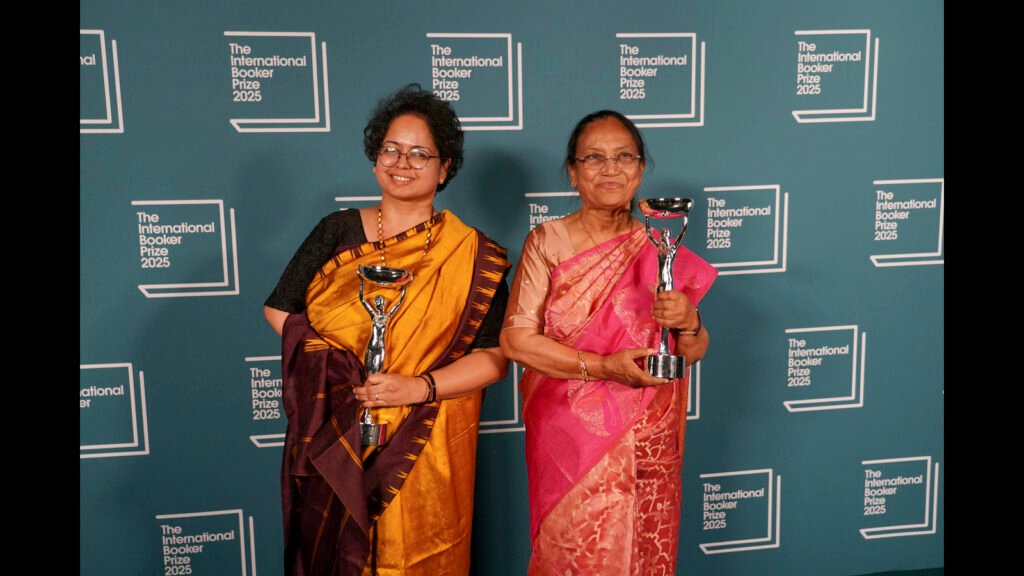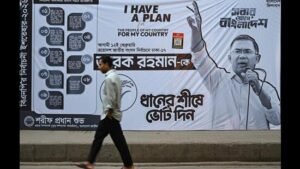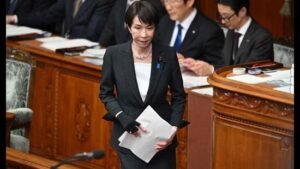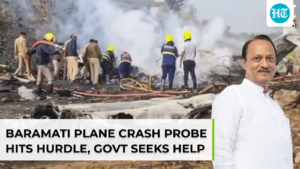
It is indeed a high moment for kannada and karnataka: kannada literature finds itself on the global literary map, Thanks to the labour of two women. Banu Mushtaq, A Senior Kannada Writer, Has Been Awarded The 2025 International Booker Prize for Heart Lamp (Hridaya Deepa), Her anthology of 12 short stories, translated into English by Deepa Bhasthi. Women’s Writing in Kannada has not received the recognition it deserves. Even most of the notable awards at the national level, the jnanpith for instance, have been conferred on men. In this context, the booker is indeed a history for women’s written in kannada which can boast of great talent from trive and mk indira of yesryears to Pratibha Nandakumar, Vaidakumar, Vaidehi, Vaidehi, Vaidehi, Vaidehi, Vaidakumar, Vaidakumar, Vaidakumar, Vaidakumar, Activly written today. And there is more, where it comes from. Much More!

Banu Mushtaq Hails from Hassan, The South-Western Town in the plains of Karnataka, while Deepa Lives in Madikeri, A Town in the Western Ghat Ranges. The Ordinary Lives of Common People in Her Small Town Constitu Banu’s Fictional Universe. The Award, Thus, Signals The Triumph of the Small Town.
A PRACTIing Advocate, and Social Activist, Banu is the Author of Six Short Story Collections, A NOVEL, An Essay Collection and a POTRY collection. Several Important Honors, Including The Karnataka Sahitya Academy Award and the Daana Chintamani Attimabbe Awards Have Seeking Her. Her short story Black Cobras, Which depicts the plight of havena, an abandoned wife, was made into an a more-winning film by girish kasaravalli, the Eminent Film Director, in 2004. Hasina and other stories.
Banu began her career during the bandaya or the protest movement of the head 1970s and ’80s. The movement was culminated in the awakening of a new social Consciousness, which LED to the Effaffersence of New Writing in Kannada. The unheard voices of marginalized groups were heard for the first time, heralding a non-Brahmin era in Kannada Litarary Culture. Sara Aboobacker, Fakir Mohammad Katpadi, Boluvar Kunhi, and Banu Mushtaq Started Chronicing the stories of their communication for the first time.
Standing on the firm ground of live experience and observed life, banu deployed written as a powerful tool of social destination. To put it in her own words: “My stories are about women – how Religion, Society, And Politics Demand Unquestioning Obedience from them, and in Doing So, Inhumane Cruelty Uponing them, Turning them INTO MENM Subordinates. Within me. The first story in Heart lamp, Stone Slab for Shaista Mahal to the last one in the collection, Be a woman once, Oh Lord! Bear testimony to the fact that her writing is a sending indictment of our social system. Banu’s Commitment to Progressive Politics Can Be Traced Back to the Bandaya Movement, Which Proclaimed, “May Poetry Be a Sword, A Sulmate Who Feels for the pain of the pet.”
It wouldn’t have been easy for banu as a muslim speaking dakhani urdu, and as a woman written in kannada, to critique the patriarchal practices of an alarady recovery. Banu Candidly DesCribes Her Predication as a Muslim Woman Writer Writing in a Second Language for a Majoritarian Reading Community. Shews in the preface to her first collection (1990), “I gradually become aware that even when I am written in kannada, I can only write about the muslim world, its muslims and sorrows, their Joys and Sorrows, Their Interests and Angularities. Could well cleaned how the larger community is outside was as resistant to any critique coming from me. ”
It is remarkable that banu has successfully negotiated this tightrop walk by simultaneously Majority Community. Her Stories Help Us Connect with the Muslim Community in A Small Town Like Hassan, which is invariable others
Deepa Bhashti’s Curation of Stories Showcases Banu’s Writing at Its Best. Deepa’s translation has ably captured the rhythms and movements of Banu’s Lifeworld to Lend a Powerful Voice to Her Various Characters in English. Her Interesting Afterword Provides a Detailed Account of the Rationale Behind Her Translation Practice which has retained Several Kannada and Urdu Words While Eschewing Footnots and Italiasts ALTOLLICS ALTOLLICS ALTOGETHRERE
Today, as new literature from the village, the Small Town, The City, and the Metropolis have grater access to knowledge and technology, treatment, trendier Different and DIFERSITY MARKS KANNADA WRITING In Insamenting In Lives and experiences that have not entred the hallowed space of the ‘literary’. The booker for Banu’s stories has the potential to the door to the divese liferolds of the kannada people through translation.
Translations have Always Built Bridges Across Communities. Which Communities do the English Translations of Our Regional Literatures Connect? Surely, Deepa’s translation has brought home the Muslim world of hassan to an international readership. Max porter, Chair of the International Booker Prize 2025, said: “Heart lamp is something genuinely new for English readers. Engles. But, as important, or perhaps more, is the bridge that it can build across the many linguistic worlds within India through India through or common, if alien, inheritance of english. Kannada literature can, as if by a sleep of hand, become Indian Literature Through English Translations. There is yet another, perhaps the most important constituency that can be served through English translations. Increasingly, the educated class, which is the likely consumer of books, is growing monolingual in its orientation. While this class is comfortable using the logal language or English for functional purposes, it largest reads in just one language: eater kannada or English, in the case of karnataka. That Sales Figures for English Translations of Regional Texts are the Highest in that very region bears out this claim. The english translations of regional literary texts can connect the more educated populace with the people are Around them. We are well-served by such translation activism.
Most of the English Translators of Kannada Literature Today Are Engaged In Developing a Pared Down Style and Forging an informal and intimate English to express the Varied Varies, Rhythms, Rhythms and Styles of the Emergent Kannada Sensibilities of a new generation in a new age, helping the “Bullock carts to reach the global stage”! (Banu’s Words). International Recognition – be it the 2018 DSC Award for Tejaswini Niranjana’s translations of jayant kaikini’s stories or now the bookor for deepa in 2025 – is bound to encourage translators to Boldly Experiment with “A Pluraritity of Engleses”, Explore New and Creative Ways of Translating to Bring Alive Novel Life- WWORLDS Unknown to the Mainstream Culture, Making for the Worlder Empathay for the World The margins. Translation can, thus, be a potent bridge which can connect our polarized worlds.
Vanamala Viswanatha is currently Visiting Professor, Azim Premji University, Bengaluru. She has translated the works of Major Kannada Writers Including Ur Ananthamurthy, P Lankesh, Poornachandra Tejaswi, Vaidehi, and Sara Aboobakkar into English. Her latest work is a translation of kuvempu’s celebrated novel, malegalli madumagalu (bride in the hills). The views expressed are personal






